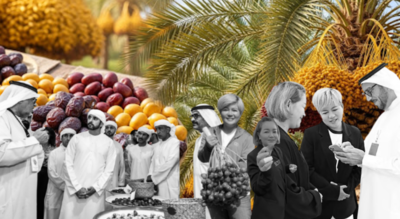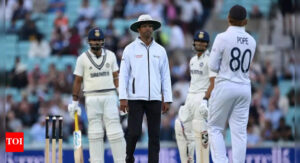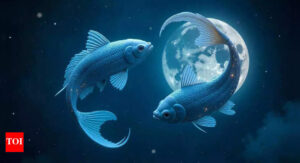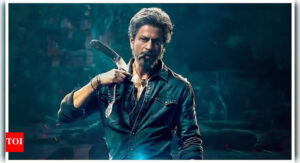AED 8 million festival prizes, Golden Visas for date farmers: Why UAE cares so much about dates | World News
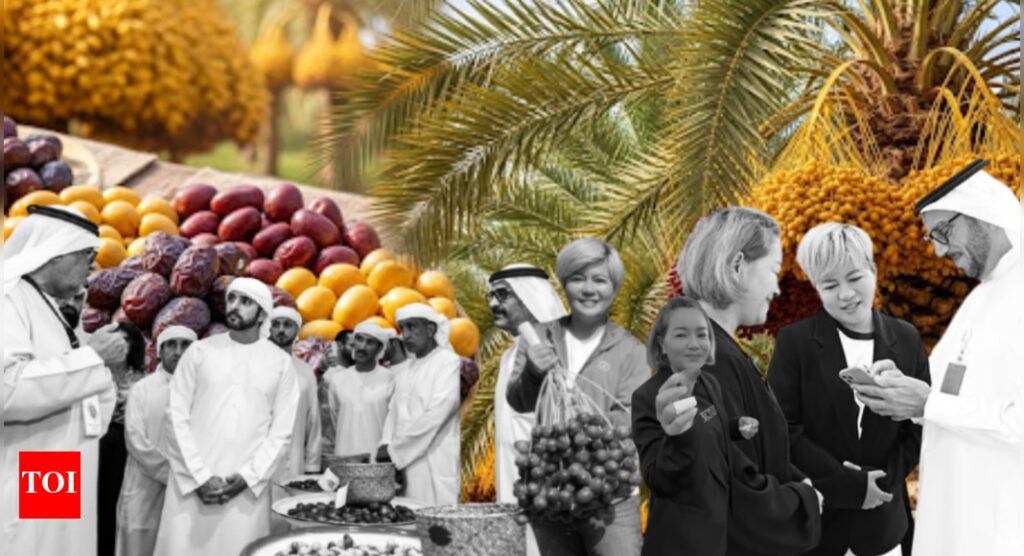
In a country known globally for its steel and skyline, it’s the date palm, not the skyscraper, that’s emerging as the UAE’s most enduring emblem. This year, that symbolism took tangible form when H.H. Sheikh Hamdan bin Mohammed bin Rashid Al Maktoum, Crown Prince of Dubai, Deputy Prime Minister, Minister of Defence, and Chairman of the Dubai Executive Council, visited the ‘Dubai Dates’ exhibition, organised by the Hamdan Bin Mohammed Heritage Center. There, he announced AED 1 million in prize grants to participants, a gesture that reaffirmed the palm’s place at the heart of Emirati identity, diplomacy, and food security.This was not a ceremonial walkabout, but a statement of national priority. The royal support comes at a time when the date palm is doing more than feeding tradition, it’s powering small businesses, influencing immigration policy, guiding sustainable agriculture, and even inspiring global soft power diplomacy.
A desert legacy with modern currency
The UAE was founded in 1971, but the legacy of the date palm in this region stretches back millennia. Long before oil wealth, Bedouin tribes and early settlers relied on the date palm to build their homes, heal ailments, and shade their oases. Archaeological evidence from across the Middle East, including Abu Dhabi, shows that date farming has thrived here for over 5,000 years.In fact, in Liwa, the crescent-shaped oasis bordering the Empty Quarter, it was the backbone of survival that allowed human life to thrive in Arabia’s unforgiving interior. Generations lived off this tree’s fruits, fronds, trunks, and seeds. The Founding Father, Sheikh Zayed bin Sultan Al Nahyan, famously dubbed it “the tree of life”, and not as a metaphor.Today, the UAE is home to over 44 million date palms and produces 76,000 tonnes of dates annually, making it the sixth-largest producer in the world, with 160 recognized varieties. And yet, dates are more than agriculture. They are living heritage. They appear in Quranic verses, line the iftar tables of Ramadan, and are offered to guests as a gesture of welcome from Abu Dhabi to Al Ain.But now, they are also a pillar of future policy. With events like the Liwa Date Festival and the Dubai Dates festival and Exhibition, dates have gone from subsistence crop to showpiece of national ambition.
A sacred fruit in sacred texts
The palm’s importance isn’t just agricultural, it’s spiritual. The Holy Quran references the date palm over 20 times, often linking it with blessings, provision, and paradise. Prophet Muhammad (PBUH) is said to have urged the faithful to break their fasts with dates, a Sunnah still widely observed during Ramadan. Scientific research has since confirmed what ancient wisdom always knew: dates are rich in vitamins, minerals, and antioxidants, making them a true superfood. In Islamic tradition, dates are given to the poor during zakat and are featured in Eid celebrations. In Judaism, palm branches are central to the feast of Sukkot, and in Christianity, Palm Sunday commemorates Jesus’s triumphant entry into Jerusalem. Even Greek mythology associates the palm with Apollo, believed to have been born under one. Religiously, then, the palm is cross-cultural, pre-monotheistic, and persistently symbolic, a rare bridge between faiths in a region too often defined by division.That reverence translated directly into physical form. The first mosque in Islam, the Prophet’s Mosque, was built with palm trunks and fronds. The Barasti or Areesh houses of early Gulf settlements were constructed entirely from palm components. This was not sustainability. It was survival. And it shaped an entire ethos: nothing is wasted. Every part of the tree had value. That same principle now powers the UAE’s circular economy thinking and sustainability doctrine.Modern-day festivals: Revival with purpose
Liwa Date Festival – The heritage anchor
Held in Al Dhafra from July 14–27, the Liwa Date Festival isn’t just a celebration of dates, it’s a nation-building institution. Launched in 2004 under the patronage of Sheikh Hamdan bin Zayed Al Nahyan, the festival is now in its 21st year, blending tradition with innovation. Here’s what makes it matter:
- 24 competition categories featuring varieties like Dabbas, Khalas, Shishi, Fardh, and Khenaizi
- AED 8 million+ in awards, incentivising quality farming and technological advancement
- Model farm displays showing cutting-edge irrigation and pest control
- Competitions for mango and lemon cultivation, highlighting crop diversification
- Traditional souks, crafts, date-based food products, falconry, and weaving
- A cultural village recreating Bedouin life, aimed at children and tourists
- Live auctions, where rare date clusters fetch thousands of dirhams
Importantly, Liwa serves as a testing ground for food security innovation. The UAE’s National Food Security Strategy 2051 is betting on smart agriculture in arid regions, and palm groves offer the perfect pilot. The trees require minimal water, survive extreme heat, and thrive in sandy soil, everything the UAE has in abundance. Liwa was also the cradle of the Al Nahyan ruling family, many of whom trace lineage to its groves. That symbolism isn’t lost on a state that places lineage, land, and legacy at the centre of national storytelling.
Dubai Dates Festival: Soft power and first Golden Visa for date farmers
If Liwa is the spiritual home of the date palm, then Dubai is its modern showroom. The Dubai Dates Festival, held July 25 to August 1 at Qalaat Al Remaal, is now in its second edition, but has already positioned itself as a cultural diplomacy vehicle. With:
- 13 competition categories, including rare cultivars like Dubai Hilwa
- Awards for Homegrown Palm and Largest Cluster
- A week-long auction in partnership with Emirates Auction
- Heritage exhibits on pollination, irrigation, and harvesting techniques
- Food stalls offering sweets, syrups, and gourmet date products
…it fuses commerce, education, and nation branding. It was here that two Thai women farmers, owners of Orawan Farm, home to over 5,000 fruit-bearing date palms, were awarded the UAE’s Golden Visa, making them the first foreign date farmers to receive the 10-year residency. Known for creatively promoting the health benefits of dates and their cultural and religious significance in Emirati life on TikTok, their work caught the attention of officials during their visit to Dubai, where a meeting with Lt Gen Mohammed Ahmed Al Marri, Director General of GDRFA, led to a surprise nomination for the 10-year residency.It was a landmark moment. The Golden Visa typically favours entrepreneurs, scientists, and investors. Farmers have never been a category. But in recognising these two women, the UAE expanded its definition of value, from capital wealth to cultural contribution.Their case may be unique, but the message is broader: heritage is now a passport to opportunity.
More than a fruit: A strategic resource
The date palm continues to be vital as climate challenges intensify, thriving where many other crops struggle. No other plant has delivered so much for so little. Recognizing its cultural and environmental importance, UNESCO inscribed the traditional knowledge and cultivation of date palms on its Intangible Cultural Heritage list in 2022. Every summer, from June through October, markets flood with early-season varieties like Al Najal and Al Khatir, priced affordably and prized for their freshness. While imports from Oman, Saudi Arabia, and Iran coexist, local demand for UAE-grown dates remains high. But dates aren’t just for consumption anymore:
- Palm trunks are reused in sustainable construction
- Fronds for eco-friendly fencing and baskets
- Date seeds processed for oils, animal feed, and even coffee substitutes
- Date syrup used as a natural sweetener and export product
- Palm hearts now appear on fine dining menus
In many ways, the economy of the date is as diversified as the UAE itself.
Rooted in the past, growing into the future
Sheikh Hamdan’s AED 1 million grant this year sends a clear message: the UAE is building a modern nation grounded in ancient wisdom amid rapid digitisation and artificial intelligence.Whether it’s a golden visa for farmers, a festival that teaches children how to braid fronds, tourists learning the difference between Fardh and Khenaizi, or model farms reducing water waste, the date palm is being used as a platform for cultural preservation and strategic innovation. In the UAE, the future is vertical, but the foundation is, and always has been, rooted in the sand.
